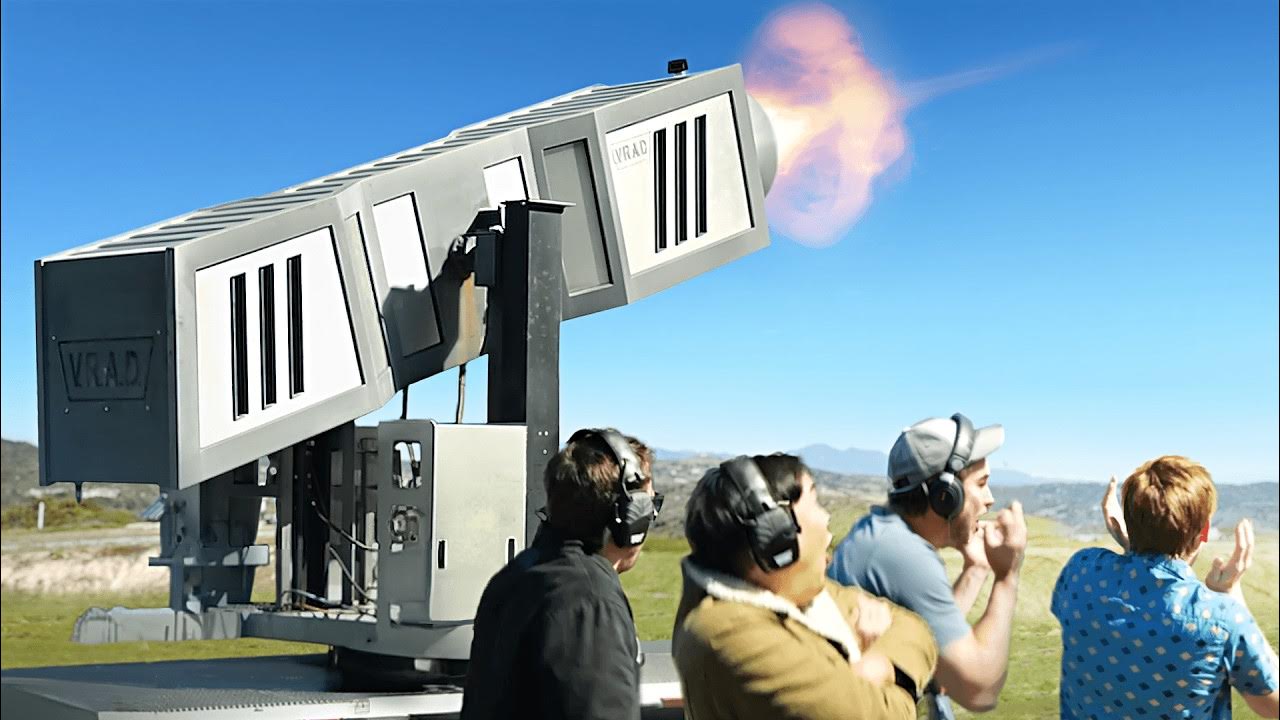I’ve enjoyed Mark Rober’s videos for a while now. They are fun, touch on accessible topics, and have decent production value. But this recent video isn’t sitting right with me
The video is here: https://www.youtube.com/watch?v=SrGENEXocJU
In it, he talks about a few techniques for how to take down “bad guy drones”, the problems with each, and then shows off the drone tech by Anduril as a solution.
Anduril aims to sell the U.S. Department of Defense technology, including artificial intelligence and robotics. Anduril’s major products include unmanned aerial systems (UAS), counter-UAS (CUAS), semi-portable autonomous surveillance systems, and networked command and control software.
In the video, the Anduril product is a heavy drone that uses kinetic energy to destroy other drones (by flying into them). Quoting the person in the video:
imagine a children’s bowling ball thrown at twice as fast as a major league baseball fastball, that’s what it’s like getting hit by Anvil
This technology is scary for obvious reasons, especially in the wrong hands. What I also don’t like is how Mark Rober’s content is aimed at children, and this video includes a large segment advertising the children’s products he is selling. Despite that, he is promoting military technology with serious ethical implications.
There’s even a section in the video where they show off the Roadrunner, compare it against the patriot missiles, and loosely tie it in to defending against drones. While the Anvil could be used to hurt people, at least it is designed for small flying drones. The Roadrunner is not:
The Roadrunner is a 6 ft (1.8 m)-long twin turbojet-powered delta-winged craft capable of high subsonic speeds and extreme maneuverability. Company officials describe it as somewhere between an autonomous drone and a reusable missile. The basic version can be fitted with modular payloads such as intelligence and reconnaissance sensors. The Roadrunner-M has an explosive warhead to intercept UAS, cruise missiles, and manned aircraft.



The optimal sweet spot is probably like 40 meters or something, within 20 or 10 meters and the drone is probably in range to drop a grenade or explode, and becomes much harder to hit because it’s capable of making much quicker direction changes relative to where you’re standing even as it presents a larger target to you as a consequence of being closer, and a whole lot farther out, and birdshot can’t really cut it.
Edit: Oh I was also gonna say, for indoor spaces, it’d maybe be not a good idea even just for hearing protection, but barring that, you could just opt for something lower velocity which you’d probably pack for this occasion if you’re defending a set location, and then just load what you need in like 2 seconds. I imagine most drones are going to be flying around above head height anyways, so the main worry would be debris and falloff. You can’t prevent debris from the drone really unless you have a net drone or something, and the falloff on the backend of a lower velocity or frangible birdshot with less mass is probably not super consequential except maybe in the case of eye protection. Some sort of ceramic bullet or maybe even steel bbs would probably work without doing too much damage. More than a drone, anyways. It’s not as though a drone that rams into another drone is a particularly safe thing, in any case.